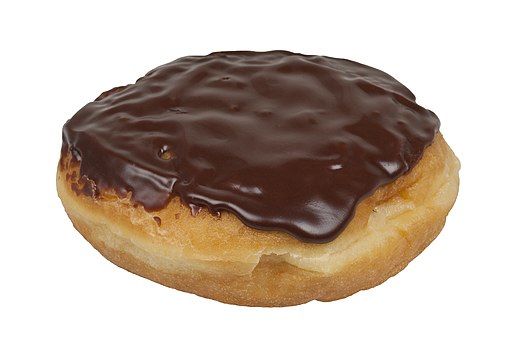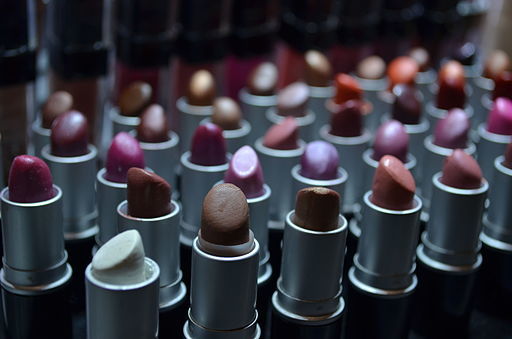Stress
Paper Napkins, Lipstick, and the Occasional Donut
My inclusive list of coping strategies works!
Posted February 2, 2019

A couple of weeks ago my handyman took five boxes of bric-a-brac, and a lot of bright, patterned socks, to Goodwill for me.
I would say I have too much stuff. I also would say that I do not hoard: I don’t have emotional difficulty getting rid of things when I allot time to do so. But I do like things. I do like shopping, spending little bits of money at Goodwill or Target or TJMaxx. Clearly, a lot of us like doing that, or there wouldn’t be so many Goodwill’s, Targets, and TJMaxx’s.
Eating sweets is my number one way of coping with stress, the one from childhood, so deeply ingrained that the other day after a stressful conversation with a friend, I go to the local market with my grocery list and find myself thinking, “I’m going to get a Boston cream donut.” My Rational Brain pipes up, “Elizabeth, you know why you’re doing that.” I nod to myself and that Little Girl Inside says loudly and clearly, “Yes, I do, but I’m going to do it anyway!” And I do. And I feel comfort—or at least, part of me does. The fact that my blood sugar soars (from both the stress and the donut) actually makes me smile the next day when I look at a graph of my blood sugar from the day before. “Oh, Lizzy,” I say to myself, without blame. “Maybe next time awareness can lead to an actual change in behavior!”
Back to shopping as a mode of dealing with stress. When I was very depressed after my first marriage dissolved, I saw a psychiatrist for several years. It was tough: my first experience of deep revelation of the frailties inside. I loved Dr. Silverstein, and told him almost everything. He wisely didn’t push me for the detail I withheld (out of shame), and I was able to figure out why I had withheld it when I went off to browse at Marshall’s after the session. I hadn’t told him because I was in love with him, and I knew enough to realize that that was part of the emotional work I was doing. I didn’t know that phenomenon was called “transference,” but I did know that he wasn’t really going to divorce his wife, fall in love and marry me. Just like I knew I wasn’t going to buy the sexy nightie I was looking at on the rack.
I didn’t always buy things after my therapy session, though I almost always wandered through the Marshall’s next door to the psychiatry practice. I recognized that I liked to be around people afterwards, a soft re-entry into the world after a time deep inside myself. I liked touching fabric, the pretty newness of soap and lotion, the array of tablecloths, dishes, glasses, and food. The sparkle of jewelry, the texture of shoes, the utility of journals and wrapping paper, the potential in towels and sheets. I’d soak it all up, the bright array of color and shape, sometimes buy something small like a pair of socks or a packet of fancy paper napkins, and then feel able to return to my cat in my husband-less apartment.
I see now that I was grieving very normally, and I could tell even then that I was going to be all right. When my second husband dies suddenly, I essentially repeat the process I had been through almost twenty years before. I start weekly therapy with Lydia-the-wonderful-therapist, and after our session I browse in the nearby shopping mecca. I find shops with socks and cocktail napkins, and the best Goodwill in the western part of the state. And the grieving and adjustment process of therapy, with its revelation of deepest secrets (all of them, this time), works again, taking a long time and a lot of shopping, and oh, yes, a sweet now and then too.
I am aware of the ways that food and material things function, and I like how Lydia helps me see my use of them as essential, in a certain way. “If you take away everything that is soothing, Elizabeth, what will you have left?” That unleashes a useful torrent of tears, since of course the major comfort—my beloved husband—has died. The occasional buttery raisin scone or new discounted lipstick is nothing in comparison with that.
When I regain enough equanimity to speak, I tell her: “I’m afraid I might never stop eating, that I might spend all my money on socks.” She smiles at me, and as I hear myself, I laugh. That is what I am afraid of—that this grief might never end—but I know it isn’t true. I’m already aware that I have other interests than food; I’m losing weight, in fact, and have taken up long walks to shed the taut tension in my body. I’m placing my money in a much more stable investment, a duplex where I will live in one unit and get my mortgage out of the rent of the other. I suddenly see what Lydia has seen all along: that the sweets and the shopping are, for me, temporary props along the way, crutches, if you will, to help keep me balanced till my broken heart heals.
Now, almost six years after David’s death, when I have the knee-jerk, “Must have a Boston cream donut!” I can let myself overrule good sense because doing so doesn’t unleash my relative control of food and blood sugar. It’s a stop-gap. As is the trip to the new Marshall’s in town, as is half an hour of online games, a nap, a cry, sitting in a chair doing nothing while one of my cats purrs in my lap.
All those things are not wasteful or indulgent, although part of me twitches nervously when I type that they are not wasteful or indulgent. They are necessary to my stability, a way I stay upright. Clearly some of those are better options than others, and we all need to work on turning to the healthiest ones first. But the deprivation, rigidity, self-blame and shame that factor into each calculation about how to cope with the jolts that life brings aren’t so great either.
We all need to identify our coping strategies, assess their effectiveness and the potential liability: that Boston cream donut doesn’t serve my diabetes very well, as both Rational Brain and Little Girl Inside recognize, but one donut for me is not addictive. I’m going to continue to work on opting for the healthier options on my list, and I’m adding things like a walk, a hot shower, a clip of something funny on YouTube to the list of soothing ways to comfort myself Upon occasion, I actually want to exercise when I'm stressed—it not only gives me calmness, but also the ability to sleep, and the beginnings of meaning-making as I think about whatever threatens my security and stability at the time.
Coping strategies are more varied than we may realize, and they need to be evaluated periodically. But in general, my practice tells me that if yours work, and they don’t physically harm you or anyone else, and they don’t inadvertently cause more stress, cut yourself some slack. We all need to be able to comfort ourselves, and if your version of an occasional donut, a tube of lipstick, or a pair of cute socks brings pleasure and relief for a time, allow yourself to enjoy the taste of sugar, practice smiling at yourself in the mirror when you put on that new color that makes you look alive, and ditch the “Wasteful!” speech when you add the socks to the Goodwill bag a few months later. You may not be perfect, but you’re all right.





